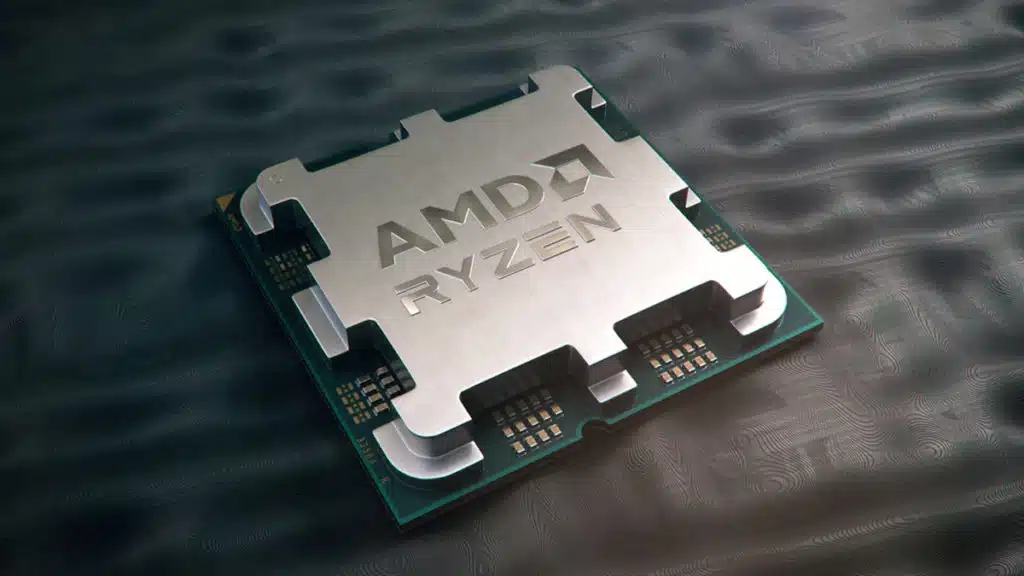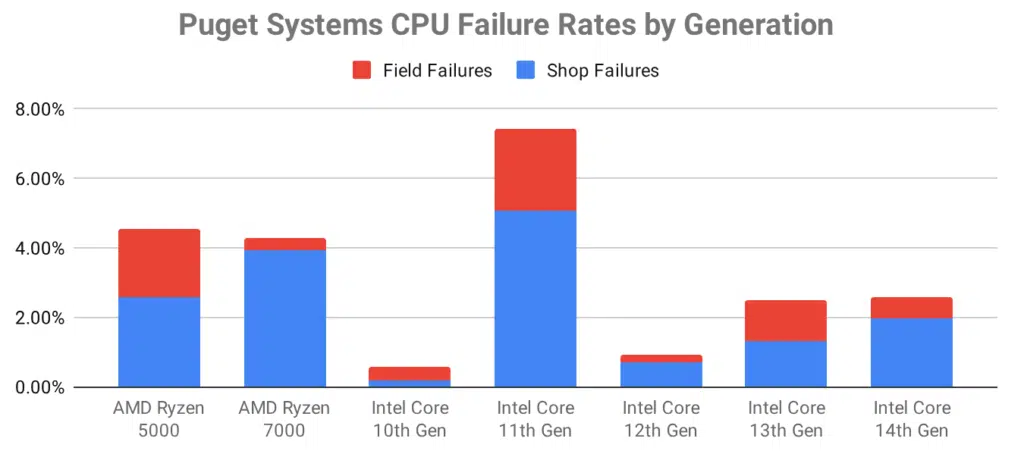The Ryzen 7000 Series and Ryzen 5000 Series, AMD’s older lineups of desktop CPUs based on the Zen 4 and Zen 3 architectures, have a higher failure rate than 13th and 14th Gen Intel Core processors, according to new data that has been shared by Puget Systems, a company that describes itself as being America’s #1 custom computer builder. AMD chip failures are shown exceeding 4% in a chart from Puget that shows failure rates in the context of multiple generations, which is higher than Raptor Lake, although Intel still appears to lead substantially in failures based on what Puget experienced with its 11th Gen Core processors.
Puget’s Jon Bach writes:
- “…the Intel Core 13th and 14th Gen processors do have an elevated failure rate but not at a show-stopper level.”
- “14th Gen isn’t as rock solid as Intel’s 10th or 12th Gen processors, but at least for us, it isn’t yet at critical levels.”
- “Based on the failure rate data we currently have, it is interesting to see that 14th Gen is still nowhere near the failure rates of the Intel Core 11th Gen processors back in 2021 and also substantially lower than AMD Ryzen 5000 (both in terms of shop and field failures) or Ryzen 7000 (in terms of shop failures, if not field).”
- “We aren’t including AMD here to try to deflect from the issues Intel is currently experiencing but rather to put into context why we have not yet adjusted our Intel vs. AMD strategy in our workstations.”
Puget Systems’ CPU failure rates by generation:
Bach added:
We…are concerned with the rise in failure rate, but it is not at a level of severity that changes our CPU recommendations for our customer workflows. We will start with internal testing for stability and performance. If it passes that testing, we will begin using it on our shipping configurations as soon as possible.


